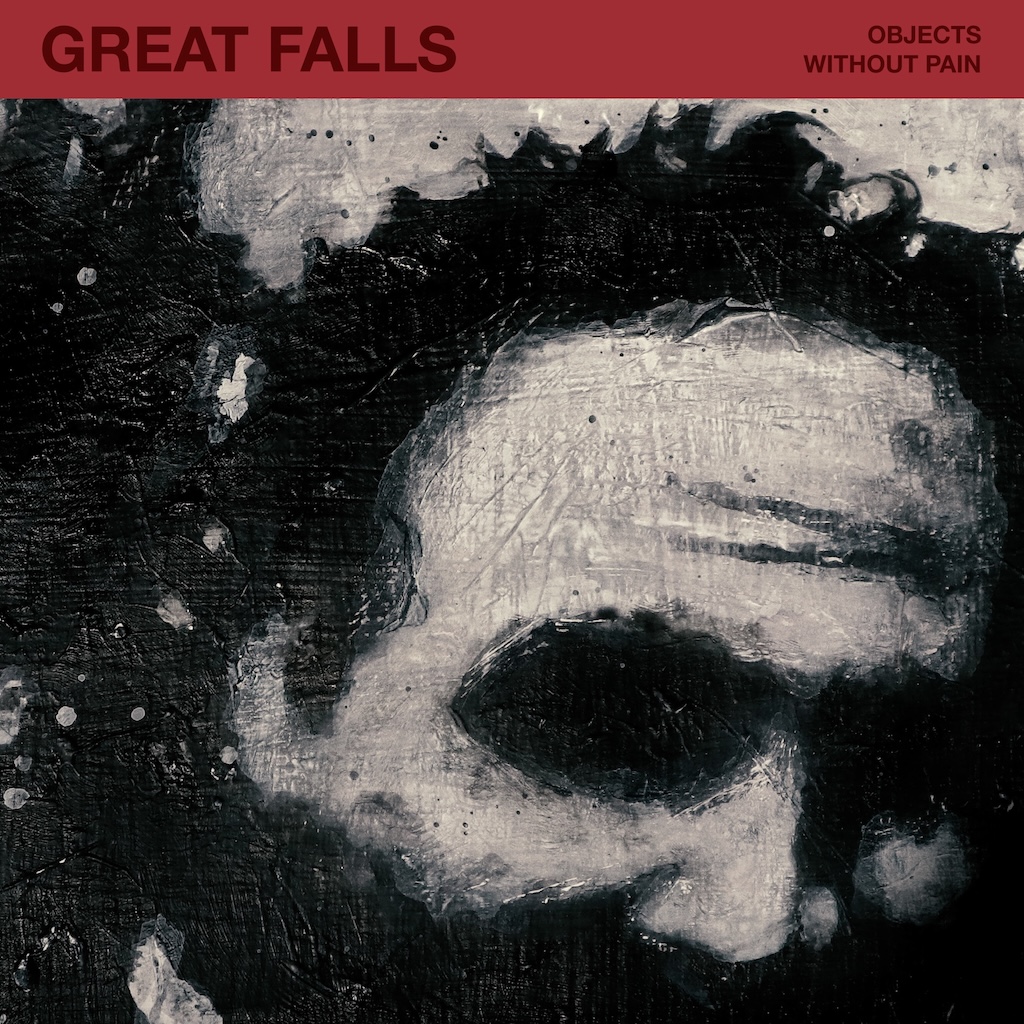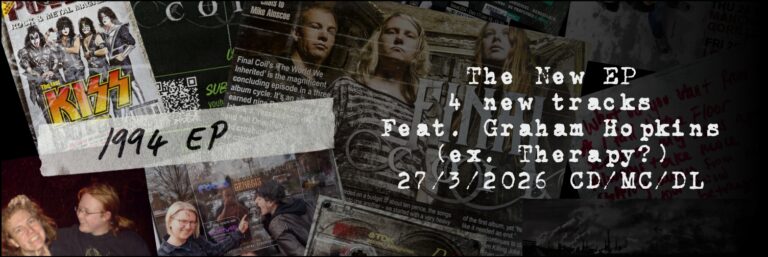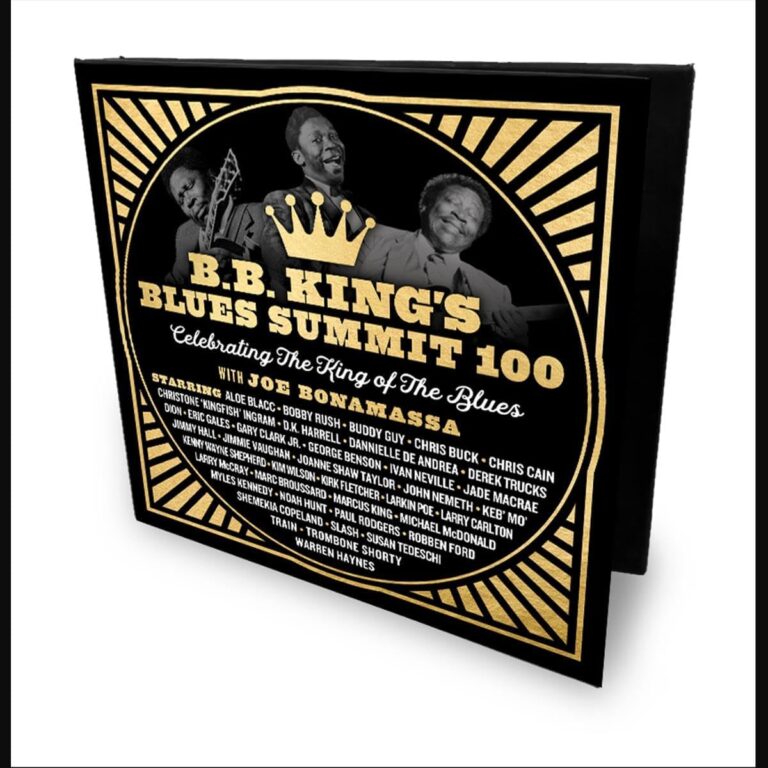
Hailing from Seattle, Great Falls deal in brooding, ominous soundscapes, stripped bare of hope and tightly wound around confrontational live performances that blur the line between the aural manifestation of violence and sheer, naked physicality. Reminiscent of Khanate, albeit not chained to BPMs in the low tens, Objects Without Pain is the band’s fourth full-length effort, their Neurot label debut, and the first album to feature the frequently astonishing talents of drummer Nickolis Parks, whose unenviable task it is to nail the coruscating riffs whilst adding vocals to the hellish mix.
A bleak, conceptual piece, Objects Without Pain, depicts the end of a lengthy relationship and, in keeping with such dark and psychologically damaged subject matter, it’s a ferocious and traumatic experience. The opening title says it all in many ways – Dragged Home Alive captures that awful sense of trudging back to a home that is no longer psychologically safe, and the harrowing vocals capture the juxtaposition of trying to eke out an existence in a place that’s superficially cosy, while all the time needing to escape – “but still, you gotta love these books this view”. The more you read it, the more harrowing the situation depicted becomes – a trick the album repeats throughout its lengthy runtime. Next up, the frantic thrashing of Trap Feeding touches on the overwhelming sense of finding a way to live alone once again – the forms and credit checks you forgot you did and never thought you’d have to do alone again – the angular guitars and throat-ripping screams verging on an aural panic attack. It segues directly into Born As An Argument, a similarly brutal trip that offers no let up. In contrast, and following a brief moment of peace, the lengthier Old Words Worn Thin is built around hulking great doom riffs, the shift in tempo somehow all the more shocking, because the violence is implied rather than screamed directly into your face.
Following a brief, whispered invocation, Spill Into The Aisle explodes into sonic violence, Shane Mehling’s bass paving the way for a full-frontal assault that leaves you feeling distinctly uncomfortable. Like being able to hear the neighbours screaming and fighting through the walls, there’s a sense of unwilling voyeurism that comes with this level of intimacy and, as the band throw themselves into the descending riff of Ceilings Inch Closer, so the album lurches further into the protagonist’s psyche to evoke the claustrophobia of grief-born insomnia. The horrific opening scrapes of The Starveling may give way to something more traditionally noise rock in scope, but it’s album closer, the thirteen-minute Thrown Against The Waves, that truly serves to bring the visceral horror to an end, but not before the band have unloaded all their pain and neuroses upon you. As brutal and unflinching as the rest of the album, nevertheless, should you cling on to your threadbare sanity for long enough, there is a dark beauty to be found here, providing some sense of redemption amidst the bleakness.
Where most pop (and even rock) records consider romance from a Hollywood perspective – whether it be the first flush of love, or staring out of a rain-spattered window at its conclusion – few artists have the courage to tackle the sheer fear inherent in the mundanity of separation: who gets the records? How can I find a new home? How does it feel to lie alone and frozen in a cheap apartment, after years of lying alone next to a partner we no longer love? Written with unflinching honesty and performed as if the entire story is occurring in real time within the studio, Objects Without Pain might just be one of the most terrifyingly raw records ever produced. The self-flagellation of Thrown Against The Waves alone is enough to leave you feeling like a trespasser in someone’s misery, and while there is catharsis of a sort, it involves considerable courage on the part of the listener to stay the course.
Music for a select few then, Objects Without Pain is an incredibly challenging record; but then art is challenging, and we should be grateful that artists remain to remind us that modern music has all but surrendered to the chilling numbness of commercial familiarity. You may only listen to this album rarely, but if you can bear it, and if you value art as a triumph of emotion over form, then you should listen. 9/10



